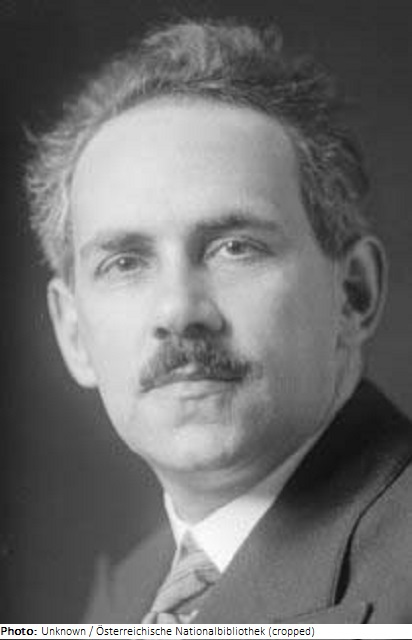Rudolf Henz

Biographical information
| Roles | Referee |
|---|---|
| Sex | Male |
| Full name | Rudolf•Henz |
| Used name | Rudolf•Henz |
| Other names | R. Miles |
| Born | 10 May 1897 in Göpfritz an der Wild, Niederösterreich (AUT) |
| Died | 12 February 1987 in Wien (Vienna), Wien (AUT) |
| NOC |  Austria Austria |
Biography
After graduation from the Imperial and Royal State High School Hollabrunn in 1915, Rudolf Henz attended the cadet school at the Theresian Military Academy. During World War I, he was the adjutant of Croatian Lieutenant colonel Stephan Duić (1877-1934). After the war, he studied German and art history at the University of Vienna and received his Ph.D. in 1923.
Subsequently, Henz worked in the Catholic people’s education and became director of the scientific department of RAVAG, the first Austrian broadcasting company, where he introduced school broadcasts. In 1934, he was put in charge of the cultural department of the “Vaterländische Front” (Fatherland Front), the single political Party in Austria at the time. Henz wrote the text for Song of the Youth, an anthem of the Austrofascist Movement. He was also a member of the Federal Cultural Council and temporary federal director of the leisure organization “VF-Werk Neues Leben”.
After the “Anschluss” of Austria in 1938, Henz lost all his positions. He became a freelance writer and a member of the German “Reichsschrifttumskammer” (Reich Literature Chamber). In addition, he worked as a glass painter and restorer of medieval glass windows. After World War II, he acted as program director of the Austrian Broadcasting Corporation until 1957. He founded the laity movement “Austrian Catholic Action” and was president of the 1952 Austrian Catholic Congress. Henz also edited the literary magazines Dichtung der Gegenwart (Poetry of the Present) and, later, Wort in der Zeit (Word in Time). From 1967-80 he was president of the Austrian Arts Senate.
Henz’s main literary work is the verse epic Der Turm der Welt (Tower of the World, 1952), which took him many years to complete. He also wrote novels, dramas, plays, and lyrics. His literary works are characterized by moral integrity and a Catholic patriotic attitude. In 1935, he was awarded the Knight’s Cross of the Austrian Order of Merit, and after World War II, the Grand Austrian State Prize for Literature, the Grand Medal of Honor for services to the Republic of Austria, the Literature Prize of the City of Vienna, and others.
Referee
| Games | Sport (Discipline) / Event | NOC / Team | Phase | Unit | Role | As | |
|---|---|---|---|---|---|---|---|
| 1936 Summer Olympics | Art Competitions |  AUT AUT |
Rudolf Henz | ||||
| Literature, Dramatic Works, Open (Olympic) | Final Standings | Judge | |||||
| Literature, Epic Works, Open (Olympic) | Final Standings | Judge | |||||
| Literature, Lyric Works, Open (Olympic) | Final Standings | Judge |